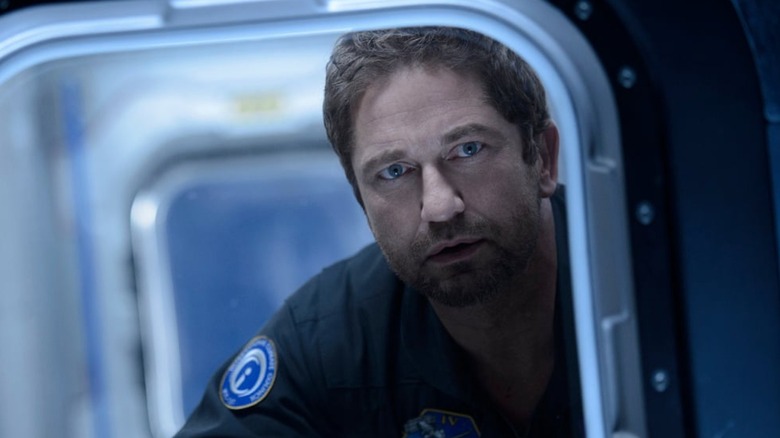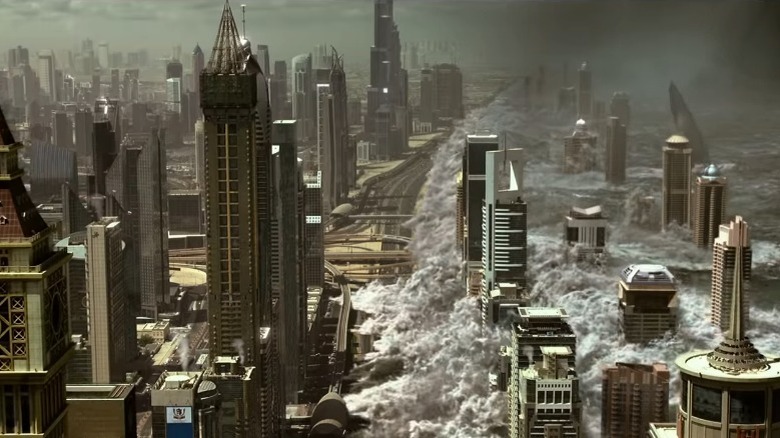Geostorm: Why The Science Makes No Sense
Hate to burst your bubble, climate disaster fans, but the science behind the tech in the box office flop "Geostorm" is not based in any reality. Current king of the action B-movie Gerard Butler headlined this 2017 natural disaster film in which scientists try to stop a weather-controlling network of satellites when they run haywire and threaten to cause a worldwide Geostorm. Nature running amok movies don't get any goofier than this, but the movie has gained a bit of a cult following in the years since its release after finding new life on HBO Max.
Despite its over-the-top absurd premise, experts have stepped in to assure the public that the science presented in the film simply does not exist. "The particular idea they have — and you can quote me on this — is garbage," Harvard astrophysicist Jonathan McDowell told Inverse. The movie, however, does serve as a warning about the dangers of geoengineering, aka trying to control the weather.
The idea of the science in the film is very loosely rooted in the real-life practice of cloud seeding, which sends planes into clouds to release a chemical to force precipitation. The movie features thrusters that shoot energy into the Earth in a similar manner to control weather patterns. "I don't see a way in which a satellite could hold the energy or be a tool that could create that much heat or that much cooling," said Department of Geography at Dartmouth College associate professor Jonathan Winter.
Geostorm is pure fantasy
"Geostorm" presents the idea of weather controlling technology that's way out of our current grasp. Astrophysicist Jonathan McDowell said, "I would say that the energies involved in trying to do what they're describing are well beyond the sort of energies that humans can manipulate in the foreseeable future."
Jonathan Winter, who studied climate prediction and variability at Dartmouth College, said that this type of geoengineering is dangerous for three reasons. The first is that there is no one international oversight committee for this type of science. The second is that it leads to neglecting the goal of reducing fossil fuel emissions and the necessary pivot to renewable energy. Finally, geoengineering experiments could result in consequences like those seen in "Geostorm." McDowell added to that point, "Maybe don't experiment on the one Earth that we have."
In a Forbes article, Robin Andrews, a doctor of experimental volcanology-turned-science journalist, took apart some specific examples presented in the film and rendered them false. In response to a scene in which geoengineers use their technology to electrocute a typhoon to stop it, Andrews said, "I've worked out that anything from an explosive volcanic eruption to a gigantic nuclear warhead wouldn't so much as dent the path of an average hurricane." He continued, "I'm confident in saying that volcanic eruptions, earthquakes and tsunamis are essentially independent of weather systems. It's not clear how a satellite would stop any of these things from happening."
He went on to say a freeze ray that freezes Afghanistan in the film could only happen perhaps in the eye of a hurricane, climate change couldn't cause a megatsunami in New York City, and he even shuts down the fact that a global geostorm is possible. "Geostorm" the film certainly puts the fiction in the genre term science-fiction.

